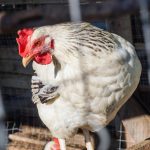Raising chickens in urban and suburban environments has gained popularity in recent years as individuals strive for sustainable living practices and local food production. However, prospective chicken owners must familiarize themselves with the applicable council regulations before starting their flock. These regulations are designed to ensure proper animal welfare, address potential nuisances such as noise and odor, and maintain appropriate sanitation standards.
Compliance with these rules allows chicken keepers to enjoy the benefits of raising poultry while preserving good relationships with neighbors and adhering to community standards. It is essential for individuals interested in urban or suburban chicken-keeping to research and understand their local regulations to ensure a successful and legally compliant experience.
Table of Contents
- 1 Zoning and Land Use Regulations
- 2 Coop and Run Requirements
- 3 Health and Safety Regulations
- 4 Noise and Nuisance Regulations
- 5 Number of Chickens Allowed
- 6 Permit and Licensing Requirements
- 7 FAQs
- 7.1 What are council regulations for keeping chickens?
- 7.2 How many chickens am I allowed to keep?
- 7.3 What are the requirements for chicken coops?
- 7.4 Do I need a permit to keep chickens?
- 7.5 Are there restrictions on where I can keep chickens on my property?
- 7.6 What are the rules for managing chicken waste?
Key Takeaways
- Council regulations for keeping chickens vary by location and it’s important to be aware of the specific rules in your area.
- Zoning and land use regulations may dictate where you can keep chickens on your property and how much space they need.
- Coop and run requirements often include specifications for size, materials, and cleanliness to ensure the health and well-being of the chickens.
- Health and safety regulations may cover issues such as waste management, disease prevention, and predator protection.
- Noise and nuisance regulations address concerns about odors, noise, and other potential disturbances caused by keeping chickens.
- The number of chickens allowed on a property is typically limited to prevent overcrowding and maintain a healthy environment for the birds.
- Permit and licensing requirements may be necessary to legally keep chickens and ensure compliance with all regulations.
Zoning and Land Use Regulations
Zoning Laws and Chicken Keeping
Zoning and land use regulations are crucial considerations for individuals interested in keeping chickens. These regulations dictate whether or not chickens are allowed in a particular area, as well as the specific requirements for keeping them. In some urban and suburban areas, chickens may be prohibited altogether, while in others, they may be allowed with certain restrictions.
Specific Requirements and Restrictions
For example, some areas may require a minimum lot size for keeping chickens, while others may have specific setback requirements from property lines or neighboring dwellings. It is crucial for prospective chicken owners to research and understand the zoning and land use regulations in their area before bringing home a flock of chickens.
Homeowners’ Associations (HOAs) and Chicken Keeping
In addition to zoning and land use regulations, homeowners’ associations (HOAs) may also have their own set of rules regarding the keeping of chickens. These rules can vary widely from one HOA to another, and may include restrictions on the number of chickens allowed, coop design and placement, and other specific requirements.
Compliance and Avoiding Conflicts
It is important for individuals living in HOA-governed communities to review their association’s bylaws and covenants before deciding to keep chickens. By understanding and complying with these regulations, chicken owners can avoid potential conflicts with their local government and HOA.
Coop and Run Requirements

Council regulations often include specific requirements for the design and construction of chicken coops and runs. These requirements are intended to ensure the health and safety of the chickens, as well as to mitigate potential nuisances such as odor and noise. Coop and run regulations may specify minimum dimensions for the coop, including floor space per chicken, as well as requirements for ventilation, lighting, and predator-proofing.
Additionally, regulations may address the construction materials allowed for coops and runs, as well as requirements for waste management and cleanliness. In order to comply with coop and run requirements, chicken owners should carefully plan and construct their chicken housing according to local regulations. This may involve obtaining building permits, adhering to specific construction standards, and undergoing inspections by local authorities.
By following these regulations, chicken owners can ensure that their coops and runs provide a safe and comfortable environment for their flock, while also maintaining compliance with local laws.
Health and Safety Regulations
Council regulations for keeping chickens often include provisions related to the health and safety of the birds, as well as the surrounding community. These regulations may address issues such as disease prevention, biosecurity measures, and proper waste management. For example, some regulations may require regular health inspections for chickens, as well as vaccination or testing for certain diseases.
Additionally, regulations may specify guidelines for the disposal of chicken waste, in order to prevent environmental contamination and public health risks. In order to comply with health and safety regulations, chicken owners should be proactive in maintaining the well-being of their flock. This may involve working closely with a veterinarian who specializes in poultry health, implementing biosecurity measures to prevent the spread of disease, and following best practices for waste management.
By prioritizing the health and safety of their chickens, owners can not only comply with local regulations but also contribute to a healthy and sustainable community.
Noise and Nuisance Regulations
One of the most common concerns associated with keeping chickens in urban and suburban areas is the potential for noise and other nuisances. As a result, many council regulations include provisions aimed at mitigating these concerns. For example, regulations may specify quiet hours during which chicken noise must be kept to a minimum, or they may require certain coop design features intended to reduce noise transmission.
Additionally, regulations may address issues such as odor control, pest management, and waste disposal in order to minimize potential nuisances associated with keeping chickens. To comply with noise and nuisance regulations, chicken owners should take proactive measures to address these concerns. This may involve implementing soundproofing measures in the coop, maintaining cleanliness to minimize odor, and using pest control methods to prevent infestations.
By being mindful of these concerns and taking steps to mitigate potential nuisances, chicken owners can maintain positive relationships with their neighbors and community while enjoying the benefits of raising chickens.
Number of Chickens Allowed

Restrictions on Roosters
In addition to a maximum number of chickens, regulations may also impose specific restrictions on roosters due to their potential for noise disturbances.
Importance of Compliance
For individuals interested in keeping chickens, it is crucial to be aware of the specific limitations on the number of birds allowed in their area. By adhering to these limitations, chicken owners can ensure that they are in compliance with local regulations while also maintaining a manageable flock size that aligns with their goals for raising chickens.
Benefits of Adhering to Regulations
By following local regulations, chicken owners can avoid potential issues with their neighbors and local authorities, ensuring a harmonious and enjoyable experience of raising chickens.
Permit and Licensing Requirements
In some areas, council regulations may require individuals to obtain permits or licenses in order to keep chickens on their property. These permits or licenses may be issued by local government agencies or animal control departments and typically involve an application process that includes providing information about the intended use of the chickens, as well as details about the coop and run design. Additionally, permit or licensing requirements may include fees that must be paid in order to obtain approval for keeping chickens.
For individuals considering keeping chickens, it is important to research whether permits or licenses are required in their area and to follow the necessary application process. By obtaining the required permits or licenses, chicken owners can ensure that they are in compliance with local regulations while also demonstrating a commitment to responsible chicken keeping. Additionally, obtaining permits or licenses can provide an opportunity for local authorities to review and approve the proposed chicken housing setup, which can help ensure that it meets all necessary requirements.
In conclusion, council regulations for keeping chickens are designed to address a variety of concerns related to zoning, health and safety, noise and nuisances, and overall community impact. By understanding and adhering to these regulations, individuals interested in raising chickens can ensure that they are in compliance with local laws while also contributing to a positive and sustainable community environment. Whether it involves obtaining permits or licenses, constructing compliant coops and runs, or managing flock size within allowable limits, following council regulations is an essential aspect of responsible chicken ownership.
By doing so, chicken owners can enjoy the many benefits of raising their own flock while maintaining harmony with their neighbors and community.
If you’re considering keeping chickens, it’s important to be aware of council regulations regarding coop placement and size. According to a recent article on Poultry Wizard, the Producers Pride Sentinel Chicken Coop is a popular choice for backyard chicken keepers. This coop is designed to meet council regulations and provide a safe and comfortable environment for your feathered friends. For more information on coop placement and other tips for keeping chickens, check out the article here.
FAQs
What are council regulations for keeping chickens?
Council regulations for keeping chickens vary depending on the location. Some common regulations include the number of chickens allowed, coop size and placement, distance from neighboring properties, and waste management.
How many chickens am I allowed to keep?
The number of chickens allowed to be kept on a property is typically regulated by local councils. This number can vary from one council to another, so it’s important to check with your local council for specific regulations.
What are the requirements for chicken coops?
Council regulations often specify requirements for chicken coops, including size, construction materials, and placement on the property. Coops may need to be a certain distance from neighboring properties and meet certain standards for cleanliness and safety.
Do I need a permit to keep chickens?
Some councils require a permit or approval to keep chickens on a residential property. It’s important to check with your local council to determine if a permit is required and what the application process entails.
Are there restrictions on where I can keep chickens on my property?
Council regulations may include restrictions on where chicken coops can be placed on a property. This can include distance from property boundaries, neighboring homes, and public areas.
What are the rules for managing chicken waste?
Council regulations often include rules for managing chicken waste, such as proper disposal methods and maintaining a clean and odor-free environment. This can help prevent nuisance complaints from neighbors and maintain a healthy environment for the chickens.
Meet Walter, the feathered-friend fanatic of Florida! Nestled in the sunshine state, Walter struts through life with his feathered companions, clucking his way to happiness. With a coop that’s fancier than a five-star hotel, he’s the Don Juan of the chicken world. When he’s not teaching his hens to do the cha-cha, you’ll find him in a heated debate with his prized rooster, Sir Clucks-a-Lot. Walter’s poultry passion is no yolk; he’s the sunny-side-up guy you never knew you needed in your flock of friends!







